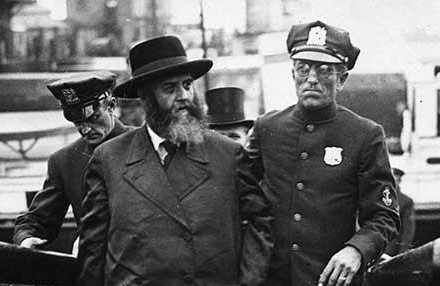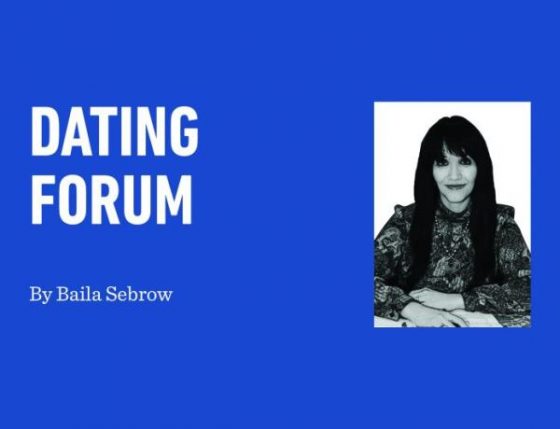Musings Of A Shliach From Montana

The Friediker Rebbe, Rav Yosef Yitzchak Schneerson, disembarking in New York while visiting from Europe in 1929
Sometime in the next week or two, our hachnasat orchim house, the Brickman-Stern Family Hospitality Center, which we purchased in 2024 and just finished renovating and furnishing, will open for the benefit of the Jewish community. One primary reason for having it is to host Jews who are struggling with fitting in and will now have the opportunity to spend Shabbos and yom tov in a warm, welcoming, non-judgmental, community, where they will be accepted for who they are, no strings attached. This one may have a tattoo, a few extra piercings, long hair, or may be a little too high, yet each of them is a sparkling neshamah deserving of Hashem’s infinite love for his nation of Israel.
Just this past Shabbos, the 4th of July weekend, we hosted guests from all over. They came from Crown Heights, Los Angeles, Miami, Tarzana, Mazkeret Batya, Houston, Sansana (southwest on Chevron), Riverdale, and Denver. It was a “Shevet Achim Gam Yachad” Shabbos. During the Kiddush lunch, one of the visitors shared with me that he used to live in a community where most of the people didn’t keep Shabbos, and only four or five families were shomer Shabbos. I interjected, asking what he meant. Were they not shomer any aspect of Shabbos? Did they come to shul? Did they have a Shabbos seudah? Did they light candles at all? He said, “I’m sure they light some candles and have a meal and even go to shul, but they’re not shomer Shabbos.” Again, I interjected and asked him what he meant by “lighting candles.” Either they lit candles like every other Jewess on earth or they didn’t. Why did he have to add “some” in a derogatory tone?
My point was that these people certainly were shomer Shabbos, they took certain aspects of Shabbos very seriously, though it may not have been perfect.
In this week’s parashah, Balak, we read about the Midianite prophet, Bilaam, who sought to inflict harm on the Jewish people with venomous curses. He eagerly accepted the offer of the Moabite king Balak to join the war against the Jews. Even though Balak and Bilaam, the Moabites and Midianites, were arch enemies, like Sunnis and Shias are today, they were delighted to join forces to take down the Jews. Hatred is a dreadful disease, an inner demon that plagues the soul, pushing us to find fulfilment in the take down, or in hurting others.
In a 1928 Chassidic Discourse, a maamar, on Parashas Balak, Rav Yosef Yitzchak Schneerson, zt’l, the previous Chabad Rebbe, quotes the verse in Devarim “But G-d, your G-d, did not want to listen to Bilaam, so G-d, your G-d, transformed the curse into a blessing for you, because G-d, your G-d, loves you.” He went on to explain as follows: because Hashem has an innate, essential, unbreakable love for the Jewish people, he refused to hear the curses that Bilaam wanted to spew; furthermore, He forced Bilaam to utter blessings upon the Jewish people. Hashem didn’t want to be the One to transform the curses into blessings; he wanted Balaam to turn his own words from curses into blessings. When someone loves another person with every fiber of their being, it’s not just that they take offence if you are nasty to their beloved, it’s that they don’t want you to even be slightly unkind or demeaning to them. The Jews are the pupil of Hashem’s eye and when He saw that Bilaam was going to curse them, not only did He seek to stop him, but He forced Bilaam to give berachos to His beloved nation, Klal Yisroel.
I think the Bilaam-Balak story is an important one to ponder. A Jew should never speak negatively about another Jew; it’s only the Bilaams of the world who can attempt to see the worst in us; we must see our fellow Jew and focus on all the good that they embody. Don’t see another Jew as someone who is mechalel Shabbos, rather see them as someone who is shomer Shabbos in so many other aspects, and may still be struggling with other aspects of Shabbos. Imagine if we took this to a topic closer to home, like talking in shul, which is despised in Judaism and happens way too often. If I saw someone talking in shul, do I see them as someone who breaks halacha by desecrating the sacred space of Torah and tefillah, or do I see them as someone who davensbeautifully three times a day, but struggles with this one aspect of hilchos tefillah, keeping quiet in the shul sanctuary. How many of those people who judge others on their observance watch Hollywood films that are questionable at best and contain vulgar language that isn’t appropriate for a frum Jew, yet these same “frum” Jews don’t want their Yiddishkeit judged based on their obsession with “Grey’s Anatomy” or “Yellowstone.” As the Gemara says about the gentile who sought to convert, that the entire Torah is boiled down to “Don’t do to others what is hateful to you.”
Klal Yisrael is a wholesome organism, it’s like a body where each limb is vital, and dismissing part of yourself because you don’t like how it is functioning is harmful and ridiculous. If a limb is struggling, you don’t amputate; you seek to bring healing, because you realize that it’s all interconnected and has a direct effect on the other parts of the body. This business of seeing other Jews in a negative light is wrong and unhealthy. You can follow whatever shitah you like, you can feel good about your Torah and mitzvah observance, but if it leads you to judge others and speak grotesquely about Hashem’s other children, you’re dropping the ball big time.
While in Costco with Chana Laya buying pillows for the guests, she asked me who was going to stay at the “house next door.” I explained to her that it will be Jews of all flavors, brothers and sister who are deserving of our love and hospitality, and she loved the idea. Our kids live in a home that has Yeshivish families from Lakewood, secular IDF soldiers, some who grew up frum but now checked out, Satmar Chassidim with shtreimels and religious Zionists with kippot srugot, and they are all enjoying Shabbos around the same Shabbos table with the same love that each of us deserves. This is something the Rebbe, zt’l, instilled in his Chassidim, but it should be universal.
On Sunday, I had the zechus of making a siyum on the tractate of Bava Metziah. Towards the end of the maseches on page 113B, the Gemara talks about what is considered permitted collateral in regard to a loan and what isn’t. We are taught that “All Israel are children of kings,” which the commentaries explain that all of us are descendants of Avraham, Yitzchak, Yaakov, Sarah, Rivkah, Rochel, and Leah, and are thus of royal descent. So, let’s live by this dictum. Let’s see each other with this viewpoint and remember that Shomer Shabbos isn’t just your way or the highway, it’s every Jew working overtime to increase their shemiras Shabbos, one candle lighting, one seudah, one prayer service, one kosher challah at a time.
Rabbi Chaim Bruk is co-CEO of Chabad Lubavitch of Montana and spiritual leader of The Shul of Bozeman. For comments or to partner in our holy work, e-mail [email protected] or visit JewishMontana.com/Donate.











